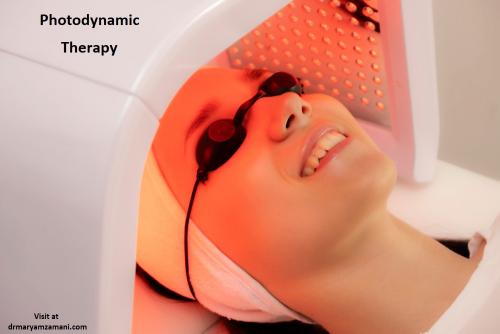Photodynamic Therapy to Treat Cancer

Photodynamic therapy is a medical treatment that uses a
photosensitizing molecule and a light source to activate the administered drug.
Very thin superficial skin cancers called actinic keratoses and certain other types
of cancer cells can be removed this way. Acne can also be treated. The
procedure is easily performed in a doctor's office or in an outpatient setting.
Photodynamic therapy is used to treat a variety of cancer
types.
Skin cancer is the most common type of cancer that is
normally treated with Photodynamic
therapy techniques. This is because the skin can be easily exposed to
light. In this type of PDT, a photosensitizer is applied to the skin around the
cancerous area and then exposed to certain wavelengths of light. This can kill
cancer cells or skin growths.
PDT needs light to work. At best, the wavelengths of light
used in PDT
can only be used to pass through about 1/3 of an inch of skin or other tissue.
It cannot treat many cancers that are deeper in your body or those that have
grown beyond the area in which they originally appeared.
However, PDT can be used to treat some types of cancer inside your body. These include:
· small cell lung cancer
· esophageal cancer
· lesions in the esophagus that may become cancerous
· some bladder cancers
PDT can also be used to treat some noncancerous conditions, such as:
· urinary tract infections caused by the bacteria Escherichia coli
· acute and chronic sinusitis
· gastritis, inflammation of the lining of the stomach
· infections of the cornea
Side Effects of PDT:
Some photosensitizing medications make the skin and eyes sensitive to light for about 6 weeks after treatment. This means you should avoid direct sunlight and bright indoor light for at least 6 weeks. The skin becomes very sensitive and can become very red and sore if exposed to light during this time.
Photodynamic therapy can cause some damage to nearby healthy tissue.
· Burns
· swelling
· pain
· scars
Side effects are usually temporary.
If you suspect you have skin cancer or would like information about any of our skin cancer treatments, please contact us and schedule a consultation with Dr. Maryam Zamani.
Post Your Ad Here
Comments